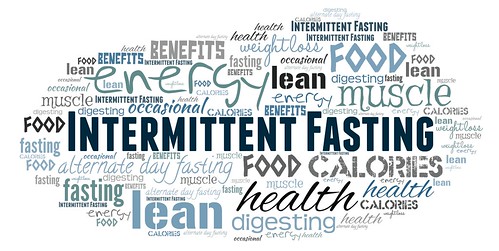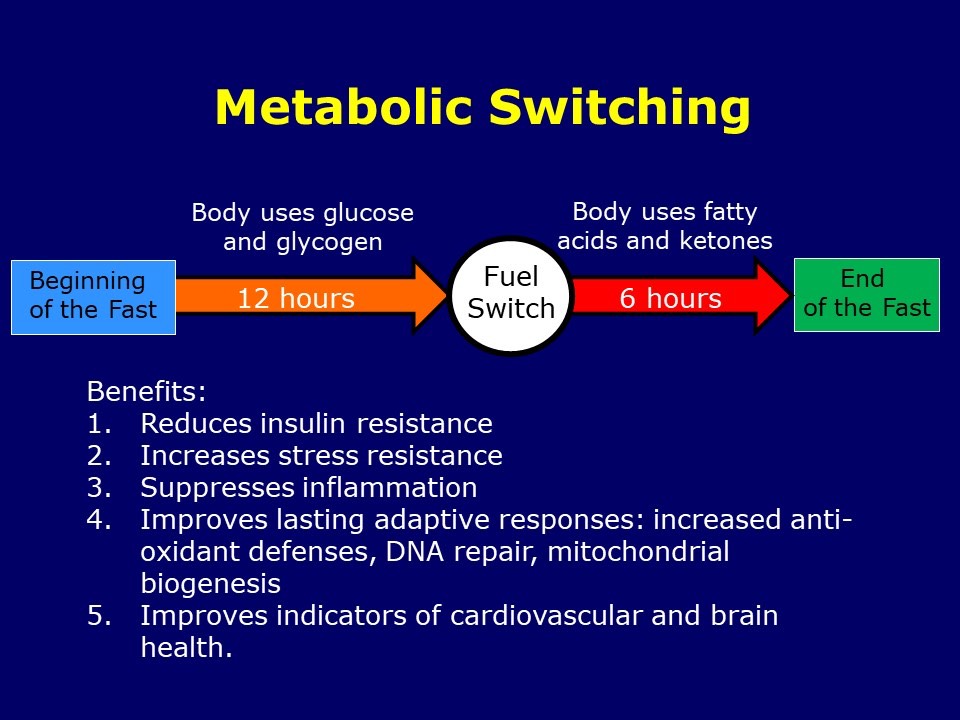Intermittent Fasting: The Truth

By: EpicTop10.com
What is Intermittent Fasting (“IF”)?
Fasting, unlike starvation, is a deliberate, precise withdrawal of several (or all) foods and drinks for a specified amount of time (hours to days). Fasting takes many forms and differs in implementation, such as restricting calorie intake and timing of meals. How long you fast also varies from hours to days (Figure 1).
What is the Key to IF‘s Success?
Fasting is a process rooted in our physiology, activating several vital cellular functions. The process centers around metabolic switching, which occurs when our bodies go from using glucose for energy to using ketone bodies (De Cabo & Mattson, 2019). When you eat throughout the day (without exercise), you run on calories and do not burn through fat. However, IF it lengthens the time you do not eat, flipping the switch, allowing your body to use up the calories from your last meal, and then burning fat instead.
However, when discussed in the media, IF‘s success is often credited to differing mechanisms. Although the underlying message may be the same, these reports differ and can often be misleading. For instance, in the video above, Dr. John Torres, an NBC medical correspondent, discusses Alabama State University’s particular study (HERE). The doctor reports that “appetite suppression [is] the key to all of this “… IF works because “it’s in line with our circadian rhythm…meaning [you should] eat most of your meals early in the day” (TODAY, 2019). However, the authors of this study concluded that timing is the key, not appetite suppression (Beyl et al., 2018). Still, the doctor’s reports are somewhat true; eating most of your calories is best at the beginning of the day. The researchers did find that “restricting food intake to the late afternoon or evening (after 4 pm) either produced mostly null results or worsened glucose levels,” etc. (Beyl et al., 2018).
Are the Benefits Real?
IF positively impacts information retention, cognition, and stress (Ahn et al., 2020). It can be a reliable option for weight loss as well. In a research review, every study testing IF demonstrated weight reduction despite variations in total calorie consumption, and the participants reported no harmful outcomes (Kelly et al., 2020). Fasting also leads to fewer cravings and helps decrease total and LDL cholesterol, blood pressure, and heart rate, with possible benefits for reducing the risk of developing atherosclerosis, battling depression and preventing chronic illnesses (Ahn et al., 2020; Laza, 2020). Similarly, daily calorie restriction and IF have successfully reversed insulin resistance in people with prediabetes or Type 2 diabetes (De Cabo & Mattson, 2019). Find out more about insulin resistance here.
To note, the benefits surrounding diabetes depend on multiple factors, and media reports on this topic are often misleading. IF cannot cure diabetes, nor is it recommended with Type 1.
Media reports on the benefits of fasting are broad. The most discussed include speeding up the metabolism, extended life, weight loss, improving insulin sensitivity, improving hunger, and sleeping better. As noted above, many of these are proven benefits. However, some are not as black and white.
WEIGHT LOSS

By: Tanvir Alam
It is sensible to think that fasting will help with weight loss, but it is deceptive to say that it is superior to other forms of dieting. A significant component of IF is allowing insulin levels to decrease for long enough that we burn fat. However, insulin will also drop if we refrain from snacking between meals, releasing stored sugar as energy. Thus, similar results would ensue. Likewise, media reports tend to imply that IF is a better choice for those who want to drop a few pounds.
The video below shows an interview with Cheri Stoka, nutritionist, certified dietitian, and owner of Weighless MD. When asked about IF, she confirmed that it is indeed “more effective than regular dieting” (TMJ4 News, 2018). However, analyses on obese humans have found that although IF leads to a weight reduction, not more so than most traditional diets (De Cabo & Mattson, 2019).
LESSENING HUNGER
When describing the study referenced earlier, Dr. Torres says it examined 11 obese adults, having them fast for 18-hour and 12-hour periods. He continues that the participants were less hungry when eating for the 6 hours; they developed less of the hunger hormone Ghrelin and were “probably burning more fat” (TODAY, 2019).
Actually, this study had eight participants (not 11), and all were obese, pre-diabetic adults (men). The authors used “early time-restricted feeding,” which is a form of IF that involves eating early in the day to be “in alignment with circadian rhythms in metabolism” (Beyl et al., 2018). Although Dr. Torres talks about burning fat and losing weight, the participants had maintained their weight; they hadn’t gained or lost. Similarly, he says the men had decreased hunger and developed less Ghrelin. Still, the results of this research found it “did not affect morning fasting levels of the hunger hormone ghrelin,” and the participants reported no change in appetite during the morning, but it did decrease at night (Beyl et al., 2018). Other researchers have reported similar results; a hunger that either lessened or stayed the same with IF (Kelly et al., 2020).
Is Fasting for You?
Blanket statements regarding IF being a fit for everyone are misleading. For instance, when asked who an appropriate candidate is, Cheri Stoka replies “anyone” because “our bodies need these cleansing and healing regimens… plus, it’s so easy” (TMJ4 News, 2018). Yet, not quite anyone or everyone should adopt IF. Fasting should be done cautiously, or not at all, in some people, such as diabetics. Furthermore, fasting carries the risk of impairing fertility, so pregnant women should avoid it. Other contraindications include age (older, younger), low blood pressure, eating disorders, and those predisposed to electrolyte imbalances (Laza, 2020).
So, is it safe to fast with diabetes or not?
Fasting being presented as a benefit for those with diabetes and contraindication can be confusing. This is partly because of the differences in Type 1 and Type 2 diabetes, which IF will affect differently. Although it may be helpful to prevent diabetes and can lower fasting glucose, people with diabetes risk hypoglycemia (low blood sugar), and those who take certain insulins (pre-mixed) should not intermittently fast (Kelly et al., 2020).
Can Fasting be Maintained Long-Term?
Research has highlighted a concern with IF, and that is its sustainability.
Cheri Stoka says that with IF, “the benefits are long term” (TMJ4 News, 2018). Similarly, when asked if this is sustainable, Dr. John Torres replies that “studies have shown that if you do it for two weeks … it becomes a habit, so then you can do it over a long period of time” (TODAY, 2019). However, although, in general, things become a habit after two weeks, he is inferring this is the case with IF, and there is no proof that this is true. It is also essential to bear in mind that there are still many unknowns surrounding IF. Because only animal studies have shown that it can improve health long term, we do not know whether humans can sustain IF to achieve the same advantages in animals (De Cabo & Mattson, 2019). Thus, the need for further, longer-term studies are needed.
In the same fashion, you may hear comments about fasting being easy, but that is not necessarily the case.
Rea Frey, an author, trainer, and “nutrition specialist,” spoke about IF in an interview with NewsChannel 5 in Nashville (see video below). Here, she reports that IF “is so easy, there are no downsides, I’ve known so many people who have done this, I do it as well, and it’s amazing” (NewsChannel 5, 2018). In addition to the comment about the lack of downsides, the ease of IF is also debatable. Many people find it hard to continue fasting for long periods; they find the process stressful and hesitate to limit their intake, which lessens compliance (Ahn et al., 2020).
Summary
The media surrounding IF over the last few years has varying degrees of truth. Many who make claims about the topic are educated and likely well-intentioned. Still, they may be misinformed or have other agendas. Thus, it is often up to us, the readers, to determine whether what we are being told is supported by reliable data. A quick method to verify the information is to compare it to other sources before assuming it is factual. This is particularly vital for information or advice regarding health and medical issues.
With that being said, there is evidence that fasting has many health benefits, but there is still a lot we do not know, so like any newer health trend, you should exercise caution. If you are looking for a diet for weight loss alone, fasting is a good option, but not the only one. If you don’t think you could fast due to scheduling, or other issues, there are other, less time-constraining alternatives to try. But, if you are looking for a style of eating that offers health benefits, such as helping to regulate blood sugar or blood pressure, then IF may be for you. Just bear in mind that this may be a more challenging routine to keep up with overtime.
Ultimately, if intermittent fasting is something you are interested in trying, you should consult your doctor first and work with a dietician or nutritionist. Having people to support, monitor, advise, and teach you during this process is essential.
Keep searching for the truth…and the proper diet!

By: Giulia Forsythe
References
Ahn, S.H., Kang, S.H., Kim, H.H., & Park, Y.S. (2020). Intermittent fasting: Current evidence in clinical practice. Journal of Obesity & Metabolic Syndrome, 29(2), 81–83. https://doi.org/10.7570/jomes20022
Bagudu, A.K., Bashir, S., Chishti, K., Hussain, S., Khan, M., Noreen, S., Rizwan, B., & Wahid, S. (2021). Intermittent fasting effect on weight loss: A systematic review. Bioscience Research, https://www.researchgate.net/publication/350089491_Intermittent_Fasting_Effect_on_Weight_Loss_A_Systematic_Review
Beyl, R., Cefalu, W.T., Early, K.S., Peterson, C.M., Ravussin, E., & Sutton, E.F. (2018) Early time-restricted feeding improves insulin sensitivity, blood pressure, and oxidative stress even without weight loss in men with prediabetes. Cell Metabolism, 27(6), 1212-1221. https://doi.org/10.1016/j.cmet.2018.04.010
De Cabo, R., & Mattson, M. P. (2019). Effects of intermittent fasting on health, aging, and disease. The New England journal of medicine, 381(26), 2541–2551. https://doi.org/10.1056/NEJMra1905136
Kelly, L., Madden, S., Minty, R., O’Driscoll, T., Poirier, D., Welton, S., & Willms, H. (2020). Intermittent fasting and weight loss: Systematic review. Canadian family physician, 66(2), 117–125. https://www.cfp.ca/content/66/2/117.abstract
Laza, V. (2020). Intermittent fasting in athletes: Pros and cons. Palestrica of the Third Millennium Civilization & Sport, 21(1), 52–58. https://doi.org/10.26659/pm3.2020.21.1.52
NewsChannel 5. (2018, August 29). Benefits of Intermittent Fasting and Blood Type Diet [Video]. YouTube. https://www.youtube.com/watch?v=sx__d_YI2hI
TODAY. (2019, July 24). Intermittent Fasting And Early Eating Help Weight Loss, Study Finds [Video]. YouTube. https://www.youtube.com/watch?v=-fKEN0hHzK0
TMJ4 News. (2018, September 25). The Benefits of Intermittent Fasting for Weight Loss [Video]. YouTube. https://www.youtube.com/watch?v=oFVscDIJPww


